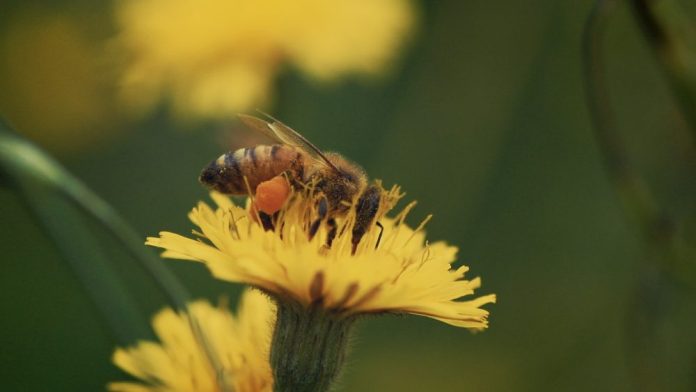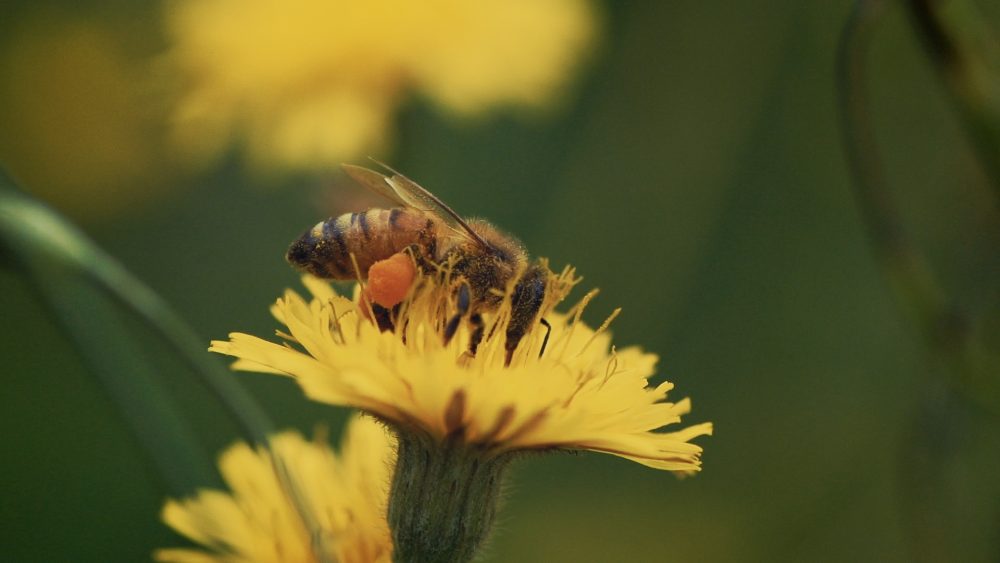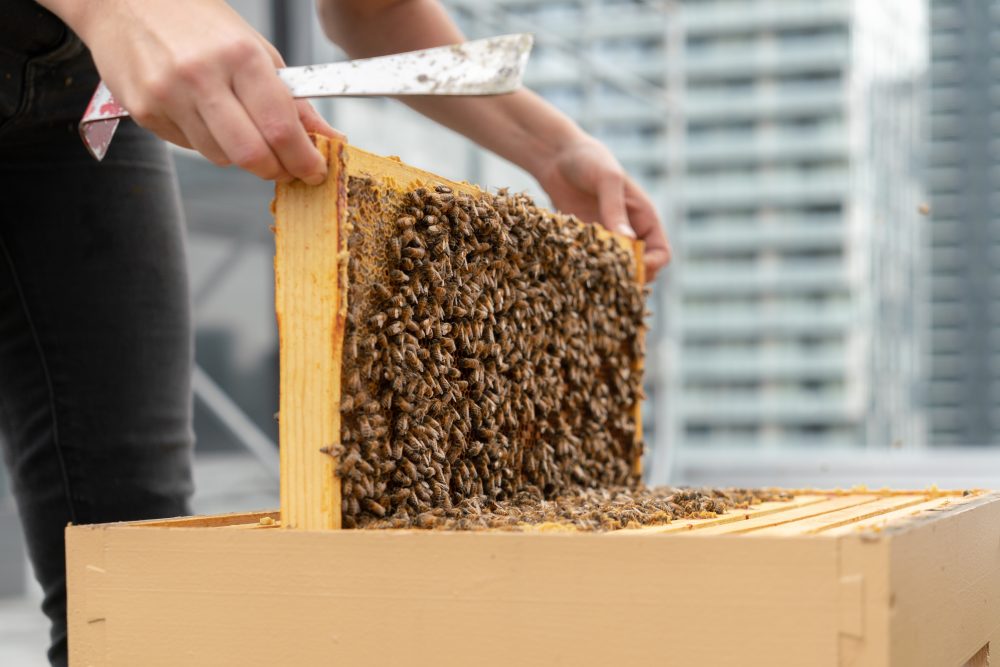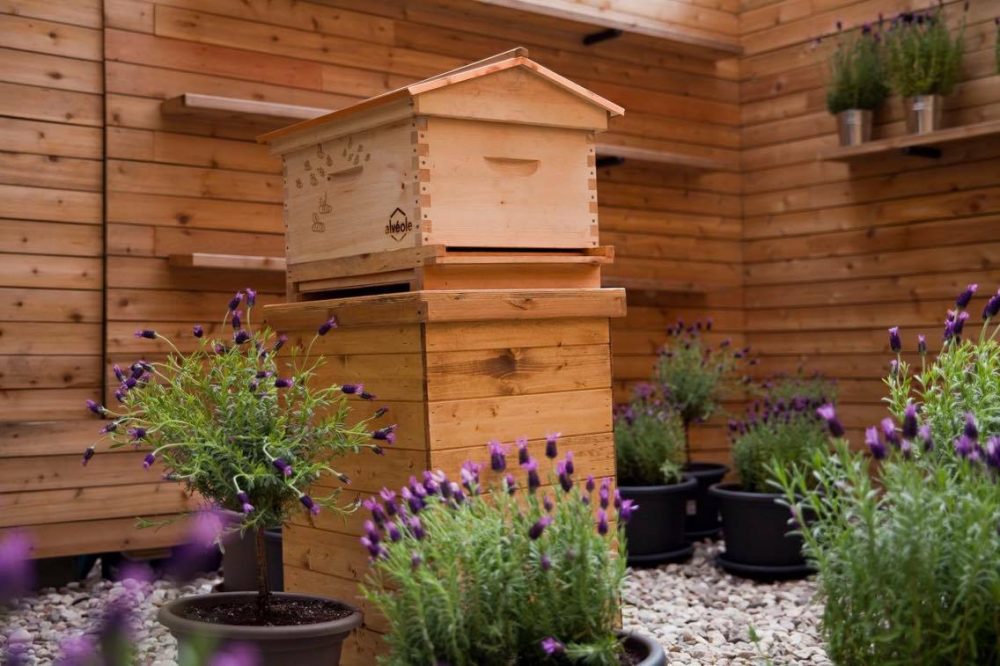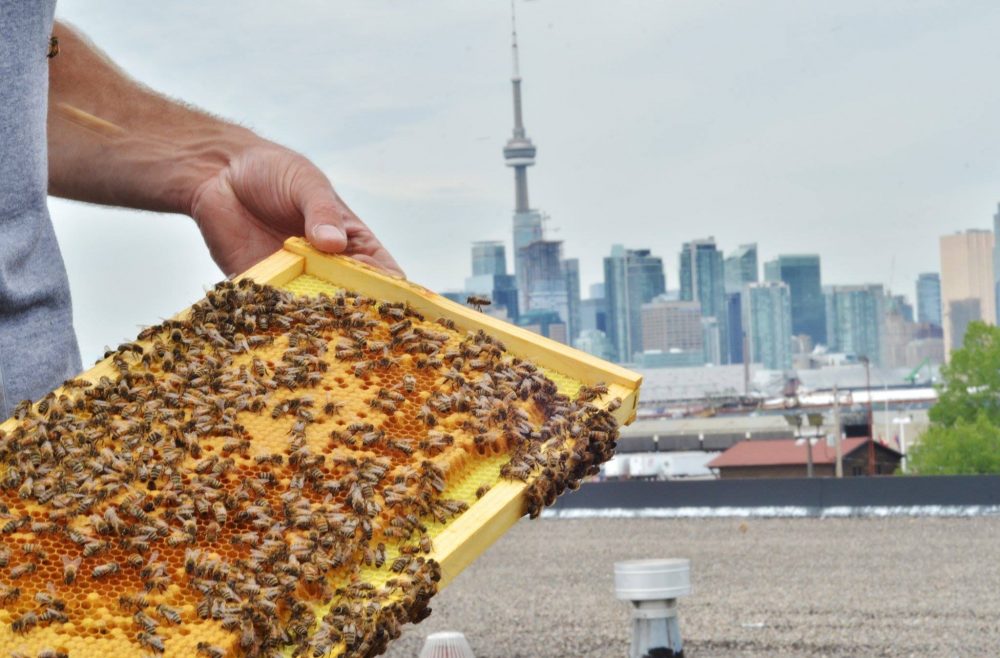There will be something of a buzz in Kitchissippi ward this summer as urban beehives make their way onto the roofs of three mixed-use properties in the neighbourhood.
Property Management group Colonnade BridgePort is working with Montreal-based urban beekeeping firm Alvéole — also known as the Urban Beekeeping Company — who will install and manage the hives.
The three hives will be installed at Westboro Connection at 315-319 McRae Ave, 1960 Scott Street, and Hintonburg Connection at 175 Carruthers Ave.
The goal of the project is to help the scarce bee population while finding a way to give back to the community.
“We knew that urban beekeeping was becoming a bit of a trend and, since working with Alvéole, it seems like there are many other major landlords that are putting putting these beehives up on their buildings,” said Stefania Parnanzone, Portfolio Manager and Mixed-Use Real Estate at Colonnade BridgePort.
In the fall, after the honey is collected, Colonnade BridgePort plans to bottle the honey and sell it to their residents. It’s expected they can bottle up to 450 jars of honey — 150 from each hive.
The funds raised will then be donated to a local charity in the community which is yet to be determined.
“Giving back to the community fundamentally is something that we felt very strongly about, but it is certainly something our tenants feel strongly about as well,” said Parnanzone. “They are very supportive of the neighbourhood communities where they live and are very excited about having a live beehive on the roof of their buildings.”
Alvéole operates out of 14 cities across North America and first opened their doors in Ottawa two years ago after demand grew.
“The reason why people we work with are interested in these kinds of projects is because it is obviously very interesting to have a beehive on location,” said Dominic Lizée-Prynne, Alvéole’s Beekeeping Team Manager for Ottawa. “It is an interesting way to further engage and offer activities to clients, students and staff.”
The hives also aim at helping the struggling bee population.
According to a report released by the Canadian Association of Professional Apiculturists in 2014, 58 per cent of bee colonies in Ontario did not survive that winter.
That is a concern for local food chains and ecosystems across the province, with wild bee species being responsible for approximately one in three bites of food we eat at the dinner table.
“Whenever a plant starts to produce, the bee will travel from flower to flower,” explained Lizée-Prynne. “As the bees do that, the flowers are covered in pollen which helps the plants reproduce. That gives us fruits and vegetables we can consume.”
The population decline would also have a negative impact on beef production, since the majority of food cattle eat is also pollinated by bees.
“You would see a whole ripple effect throughout our food system,” said Lizée-Prynne.
Colonnade BridgePort plans to hold a variety of different initiatives to go along with the hives, including a “Name the Queen Bee” contest for all three of their hives.
Due to COVID-19 restrictions, Alvéole won’t be able to hold in-person workshops like they typically do, but Colonnade BridgePort aims at ensuring as many activities as possible can go ahead through their social media channels.
Parnanzone said if all works out with the beehives, they are open to installing more.
“Right now, we just have the three confirmed, but certainly just from the excitement of it from other clients and tenants, I’m confident that we will be able to roll this out at some of our other properties in the future,” she said.
All three hives will be installed in early to mid-June. Alvéole will check on them every three weeks for routine maintenance.
To learn more about Alvéole’s urban beekeeping initiatives, visit: alveole.buzz.
